SUMMARY
This is AI generated summarization, which may have errors. For context, always refer to the full article.
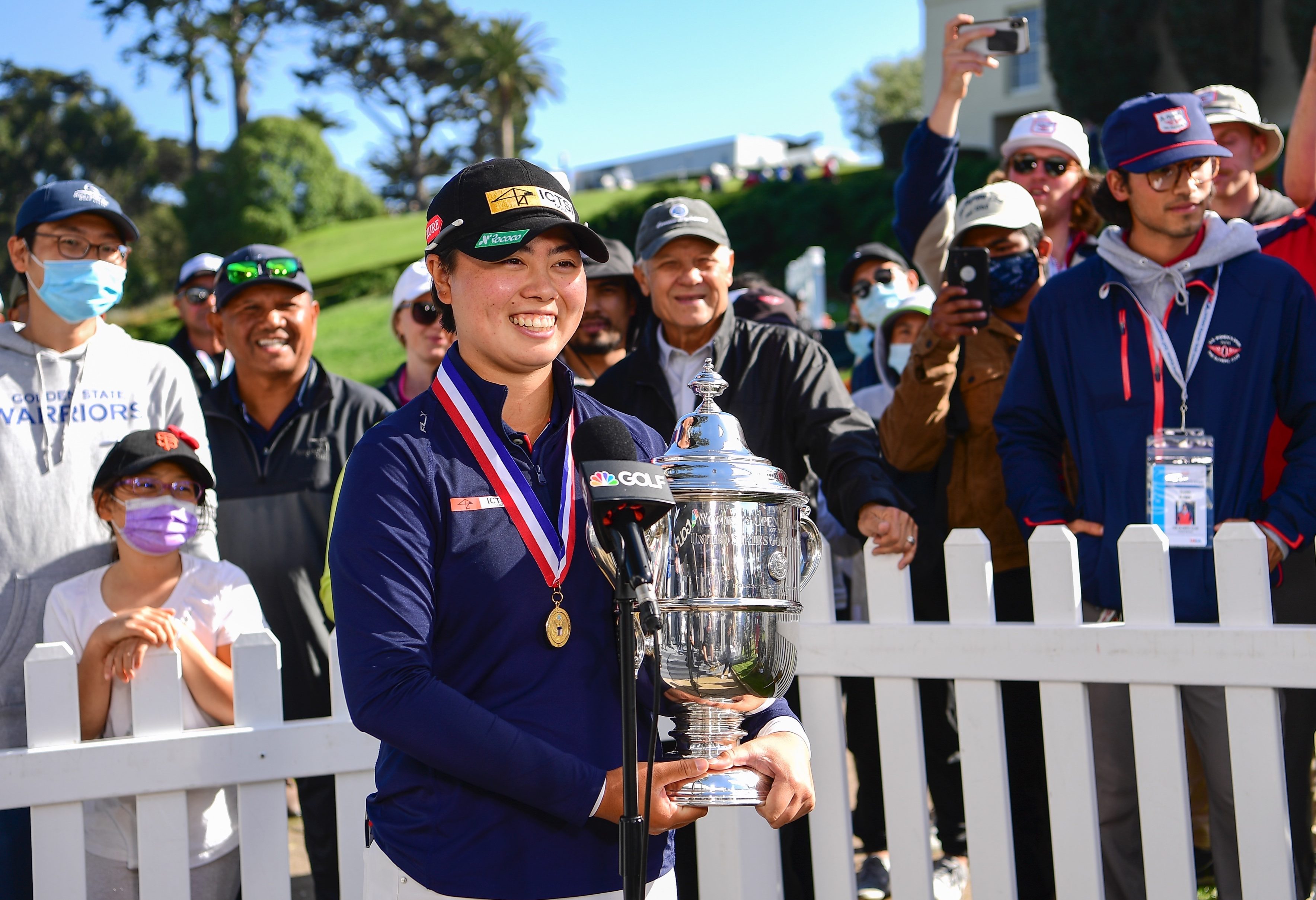
Yuka Saso has made a decision, but it was a tough one.
When she turns 22 years old, the Philippines’ 2018 Asian Games double gold medalist and lone major golf winner will renounce her Filipino citizenship and become a full Japanese citizen.
Regardless of the Japanese law that forces dual citizens to choose a nationality by the age of 22, there is power in having the flag of the rising sun beside her name in tournaments.
After her 2021 US Women’s Open win, it’s no doubt that Saso had sponsors lining up in front of her. Endorsements play a huge role in the total revenue of professional athletes. According to USA Today’s Golf Week, South Korean stars earn six-digit figures in dollars in their local LPGA.
The only thing that further hindered Saso from this other pot of gold was her dual citizenship.
Culturally, the Japanese citizenship is a symbol of loyalty, which local brands put a premium on.
These companies are very eager to hop on Saso’s success train, investing in her potential to become the third female Japanese player in history to win another LPGA major for Japan after Hinako Shibuno in the 2019 Women’s British Open and Hisako Higuchi in the 1977 LPGA Championship.
This move is pivotal for Saso, who’s still in the early stages of her professional career, yet has quickly become so successful.
Golf is a million-dollar sport and this is the security a 20-year-old professional golfer will need. Even though the current world No. 6 is among the sport’s top earners since her stints in the Japan LPGA, having sponsors takes the mental load off her with regards to finances.
In an episode of Rappler’s Targeting Tokyo, Saso said she struggled mentally in transitioning to the pros.
“It was my dream to be a professional golfer and yes, the life is a little bit different now because as an amateur, you don’t get paid. And now, as a professional, you have a lot of expenses, so you need to work,” shared Saso.
“Since I turned pro I had also to think about my rankings, I think that’s the most important thing because when I play good, my rank goes up but then if I don’t play good my ranking goes down.
“So that affects everything right? So I have to play well, I have to earn.”
Saso’s financial burdens were briefly relieved when she pocketed a $1 million-purse from her US Women’s Open triumph and earned her LGPA Tour membership, plus 10 Open exemptions, but the costs remain great to keep doing what she loves most.
In the same report by USA Today, a professional golfer in the LPGA could spend over $173,200 in a span of 25 events as players shoulder 100% of their travel and accommodation costs:
- Hotels – $22,000
- Airfare – $11,000
- Rental Car – $5,000
- Meals – $10,000
- Caddie – $76,200
- Instruction – $15,000
- Trainer – $5,000
- Mental Coach – $4,500
- Agent – $12,000
- Accountant – $1,500
- Incidentals – $6,000
- Golf membership – $5,000
Other than the cultural barriers, Saso will be able to save on visa costs and application processes with the stronger Japanese passport.
Saso’s promising future in golf will also save her from the legal disadvantages of Japanese women, and can also serve a solution to their plights.
Japan’s tax system incentivizes women to quit full-time posts and supports families financially when wives earn less. The “Wall of ¥1.03 million” is a social phenomenon that signifies the heavy disadvantage of married Japanese women. Husbands can claim ¥380,000 when wives earn less than ¥1.03 million. Furthermore, the wife will not be required to pay a premium to become eligible for the national pension plan.
Not only will Saso’s future earnings secure her future as a Japanese woman, but her presence in Japan golf inspires young girls to take up the sport as a way out of the legal prison ahead of them.
In the end, choosing the Japanese citizenship is a testament to how strategic Saso’s professional career has been.
The star golfer moved back to the Philippines when she was eight years old to learn and excel in the sport as it is significantly cheaper to apply for country club memberships and get mentorship.
Saso is considered a homegrown Filipino talent and trained hard to secure national team slots. She served the country by ruling numerous national and international junior tournaments like the World Junior Girls Championship, Philippine Junior Amateur and Philippine Ladies Open.
After clinching a double gold in the 2018 Asian Games, she went on to become the flag bearer of the 2018 Youth Olympic Games in Buenos Aires.
Even on the onset of her professional career, Saso immediately bagged two Japan LPGA titles and topped the money list amounting to P50 million as a dual citizen, paving the way to receiving the Philippine Sportswriters’ Association (PSA) Athlete of the Year Award twice in her career.
And of course her eventful 2021 was marked by her historic US Women’s Open triumph, becoming the first Filipino to win a golf major, and representing the Philippines in the Tokyo 2020 Olympics.
After all the honor Yuka Saso has brought to the country, it is time to support her in the next stages of her budding pro golf career.
As she continues to say: “I will always be proud of my dual heritage and that will never change.”
– Rappler.com
Add a comment
How does this make you feel?
![[PODCAST] Targeting Tokyo: Yuka Saso](https://www.rappler.com/tachyon/2021/06/targeting-tokyo-square-yuka.jpg?fit=449%2C449)
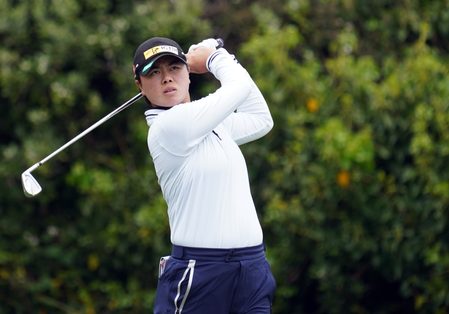
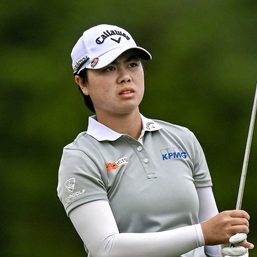
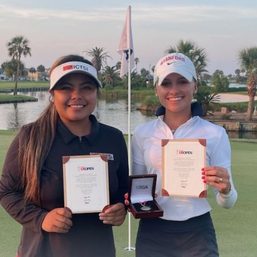
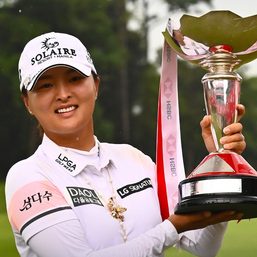
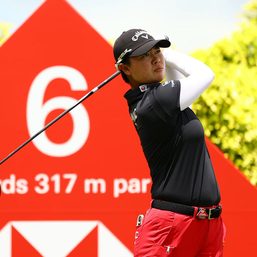
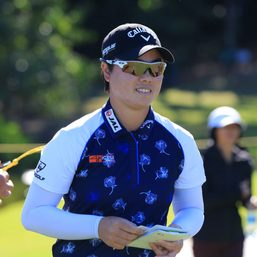
There are no comments yet. Add your comment to start the conversation.